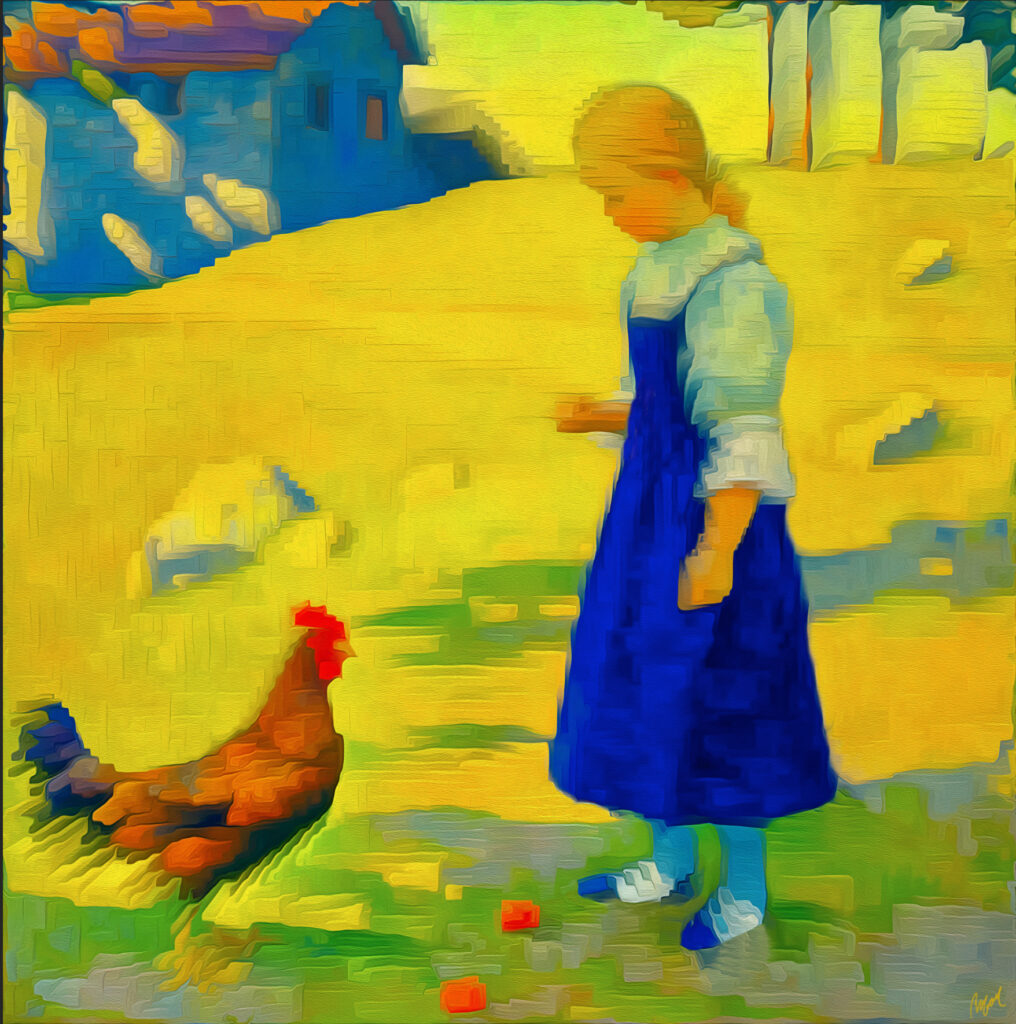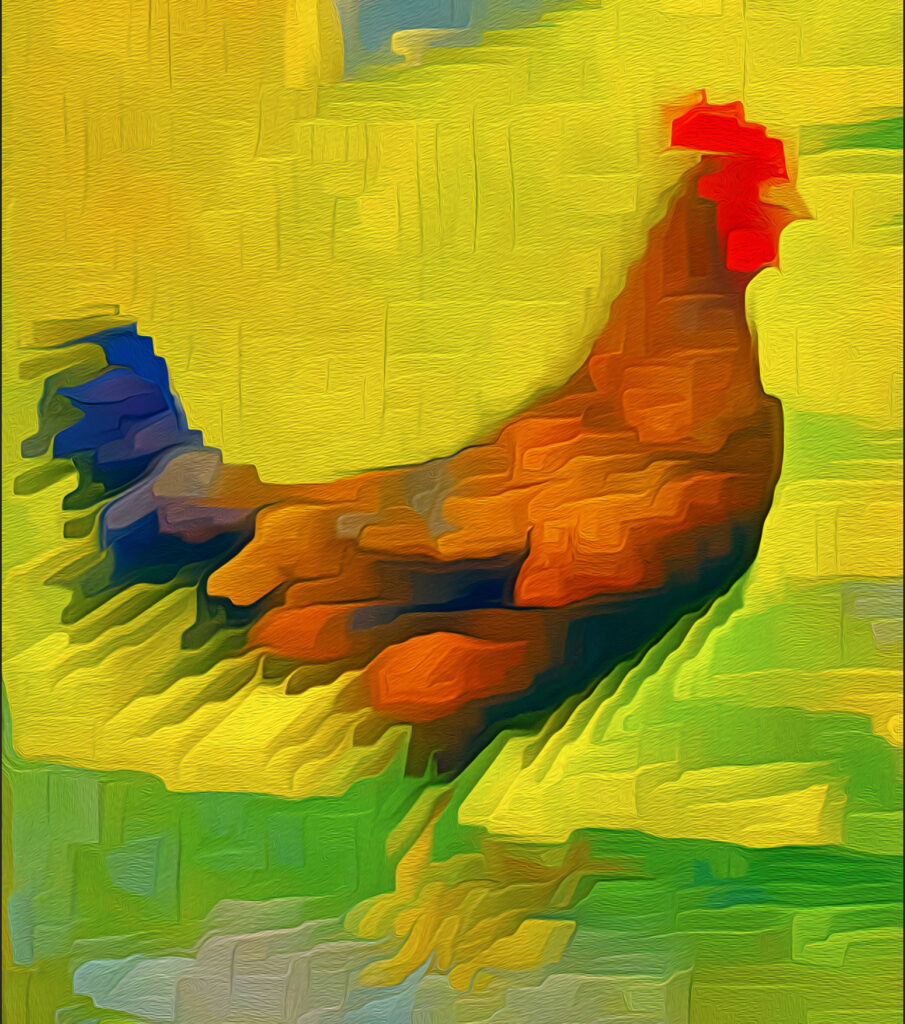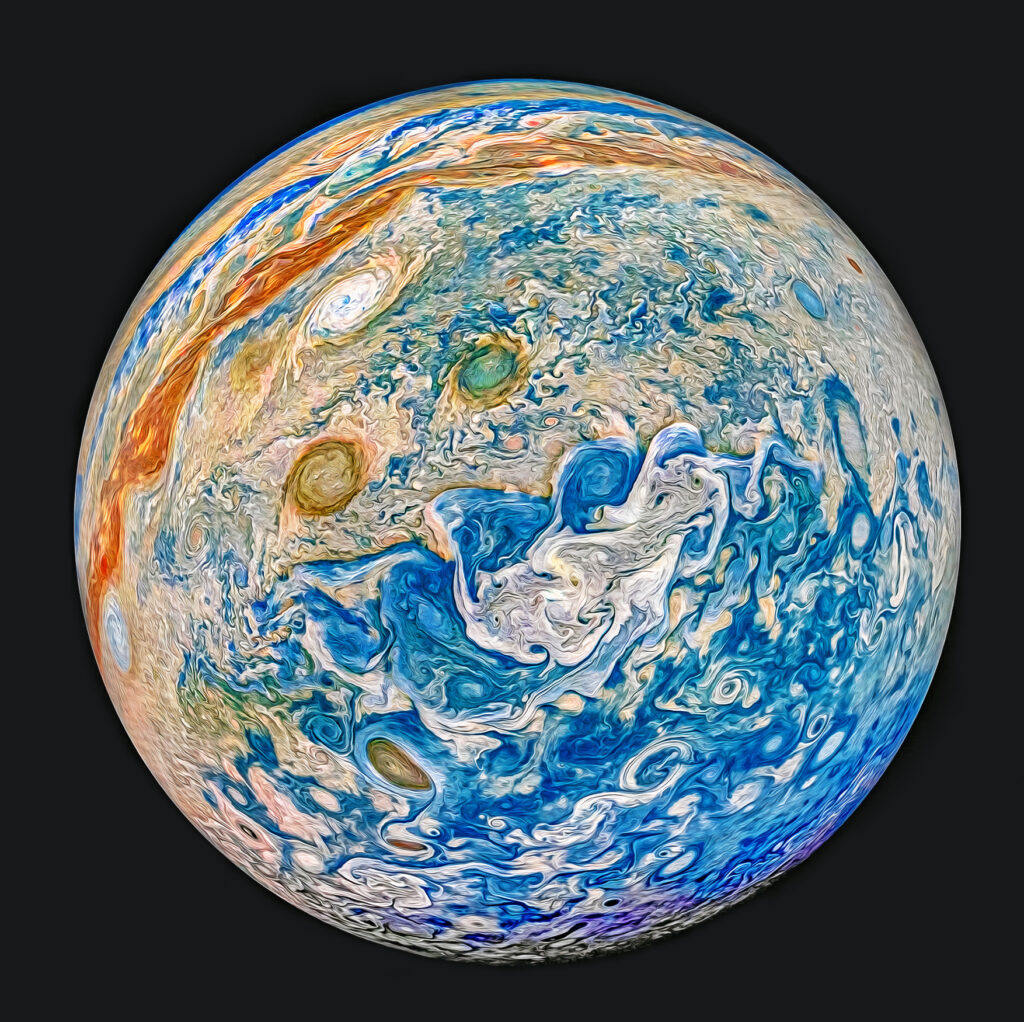Your cart is currently empty!
Nevertheless they were disobedient, and rebelled against thee…Therefore thou deliveredst them into the hand of their enemies, who vexed them: and in the time of their trouble, when they cried unto thee, thou heardest them from heaven; and according to thy manifold mercies thou gavest them saviours, who saved them out of the hand of their enemies.
Nehemiah 9:26-27

There once was a maiden named Kerttu, whose manner was as gentle and pleasant as spring rain. She lived at the edge of Hirvijärvi—a forest in the land of Kalevala where the shadows stretch long in the morning and shorter in the evening—though this, as we shall see, was soon to change.
Each morning, as the light began to lift and the stars retreated, Kerttu would take the path that ran past her family sauna. Carrying a pocket full of breadcrumbs and apple slices, she would scatter them upon the lake’s surface. The ducks of the place would race toward the offerings, leaving zigzagging trails in the water as they competed for each morsel. Kerttu giggled when the smallest duck always got the final crumb.
One day there appeared in the clearing a creature she has never seen before—a rooster clothed in golden feathers. Kerttu, unafraid—for her heart was both pure and untroubled—offered him the same crumbs and apples she had in her pockets. The rooster performed a dainty little dance, hopping gracefully before pecking at the fruit with ease, tossing each slice in the air and catching it again with remarkable precision.
There was no shortage of opinion in the village regarding this prodigious bird. Some declared it had flown from the enchanted lake at Viherlaakso; the village elders insisted it had been conjured by Louhi, the soothsayer from Pohjola, known for boiling spells in a cauldron.
Kerttu paid no heed to such warnings. She liked that the rooster’s plumage gleamed in the sunlight like molten gold, so she kept on feeding him—and besides, whether enchanted or otherwise, he had never pecked her fingers.
This rooster, however, was unlike any other. Instead of greeting the dawn with the noble cock-a-doodle-doo of his kind, he cried out numbers—and not in their proper ascending order—but in reverse.
Kolme! Kaksi! Yksi! (Three! Two! One!) he called, in a voice so clear that the clocks shrank with shame.
The first day, the villagers laughed. The second, they began to worry. By the third, something had clearly changed.
Bread in the ovens unbaked into dough.
The fishermen’s beards grew shorter with each crow.
The schoolchildren forgot what they had learned the day before.
The schoolteacher, master Ilmari—a man learned in grammar and fluent in despair—watched the ink disappear line by line from his textbook. Time runs backwards! he muttered, like crabs on the shores of Tapiola.
The village elders, already inclined to panic as old women are to gossip, consulted an old Finnish Book of Charms—the one kept under lock and antlers in the village hall. It listed spells, curses, changelings, and all manner of trollish tricks—but nothing about roosters or broken clocks.
So the villagers, dismayed, cried out to heaven for relief. And since it is well known that Heaven rarely descends, but may, on occasion, sing, they sent word by drum to Väinämöinen, bard of the impossible, tamer of rivers, and reader of the future.
Väinämöinen arrived by boat from across the lake. He stood as tall as the birch trees of Karelia. His kantele glowed in the mist, his mantle was woven with runes, and his boots were green with moss. He stepped into the clearing, smoothed his long beard, which reached the ground, and stood before the rooster. He listened for a very long time, then he spoke:
This is no ordinary cock-a-doodle-doo.
This rooster unwinds time.
Each crow snatches an hour from the day.
Each peck turns mittens back to fleece.
The maiden feeds him apples…
but time pecks at her memory too,
so she no longer remembers why.
And it was true—poor Kerttu could not even remember her own name!
What are we to do, great bard? asked the village council in one voice.
Väinämöinen plucked one long, mournful note from his kantele and said:
If time walks backward, then so must you!
Walk in reverse, speak in reverse—
Where once you cried: “Kiekaise eteenpäin!” (Sing Rooster!)
Tell him instead “Eikaise kiteenpäin!” (Ring Sooster!)
(That’s how Finnish children speak when they wish to sound reversed)
Only by unspooling the spell
can you find the start of the thread.
And so, plucking another note so doleful that even the trees groaned in sympathy, Väinämöinen began to sing. The villagers and Kerttu followed him in circles, walking like crabs and chanting:
Ring Sooster! Ring Sooster! Ring Sooster!
Meanwhile, the rooster looked at them like they had all lost their minds.
After three hours of chants and other foolishness, the rooster pecked once more at an apple, turned his head toward the lake, swelled his golden chest, and for the first time declared:
Yksi! Kaksi! Kolme! (One! Two! Three!)
At that moment, something odd happened:
The bread began to rise again in the ovens.
The ducks paddled forward instead of back.
The fishermen’s beards, once retreating, now grew again.
The schoolchildren remembered how to spell perhosen toukka (catterpillar).
Kerttu, memory restored and cheeks bright with laughter, gathered her last crumbs, tucked away an apple for the next day, and ran home to tell her mother the whole tale.
And that is why, from that day forward, whenever the sun delays without reason, the children of Hirvijärvi do not grumble. Instead, they take three steps backward, laugh with mischief, and cry out with all their might:
Ring Sooster!

